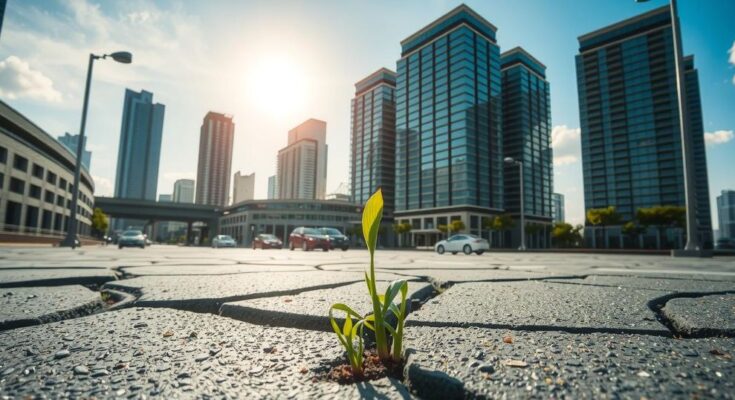Lebanon’s new government must urgently address the economic crisis marked by a staggering banking deficit and currency devaluation. Key officials emphasize transparency, accountability, and structural reforms as critical for restoring trust and securing international aid. The influence of Hezbollah poses a significant challenge to needed governance changes. The road to recovery depends on swift and effective action to reintegrate Lebanon into the global economy.
In light of a new president and cabinet, Lebanon’s current government faces a crucial challenge amid a severe economic crisis. Since 2019, Lebanon has grappled with an $80 billion banking sector deficit and a staggering 90% depreciation of its national currency. The International Monetary Fund has highlighted the government’s insufficient economic reforms, which remain stalled due to political disputes, resulting in a heavy reliance on foreign reserves. Prime Minister Nawaf Salam, who assumed office in January, alongside President Joseph Aoun, has committed to the mantra of “rescue, reform, and rebuild”.
Experts stress that immediate structural reforms are essential for restoring trust and confidence in Lebanon’s economy. Fadi Nicholas Nassar of the Middle East Institute emphasizes that rebuilding trust is a challenging endeavor, noting, “Trust, though quickly lost, is not so easily restored.” Key reforms sought include full transparency and audits of financial sectors, as underscored by economist Jassem Ajaka, who called for a historical audit in Lebanon since 2003 to equitably address financial losses.
Lebanon’s recovery relies heavily on securing international aid, linked to established reforms and geopolitical developments. Ralph Baydoun, a strategic communications expert, noted that crucial priorities involve implementing anti-money laundering measures and a comprehensive banking audit. Moreover, addressing Lebanon’s longstanding sectarian politics by abolishing financial quotas is considered vital for good governance.
Persisting political deadlock has complicated the distribution of financial losses. Ajaka recommends deep banking sector restructuring that prioritizes both depositors and the overall economy, while advisor Farida emphasizes the importance of financial accountability for elites responsible for the crisis. He advocates a phased recovery roadmap that protects small depositors.
Hezbollah’s influence remains a significant impediment to reforms, as its military and political entrenchment deters international investment. Nassar argues that dismantling Hezbollah’s power structures is necessary for true sovereignty and professional governance. However, Baydoun believes the group’s position is wavering due to diminishing Iranian support, potentially paving the way for improved relations with the West.
The economic crisis exacerbated humanitarian challenges, with the World Bank estimating substantial damages from conflicts and severe GDP contraction. President Aoun reaffirmed the government’s commitment to pursuing reforms, stating that immediate legislative action is a priority. Urging reforms, Farida emphasized the importance of accountability in restoring trust in public institutions.
As Lebanon embarks on the path to recovery, the government’s legitimacy hinges on delivering tangible results. Moody’s anticipates a possible uptick in economic recovery, although this hinges upon political stability and effective reforms. Notably, foreign investments are contingent on Lebanon’s ability to establish an independent judiciary and maintain calm relations regarding ceasefire agreements.
Lebanon must also focus on energy sector reforms to support economic recovery. Haytayan indicated that the private sector must play a crucial role in investing in renewable energy, and stressed comprehensive electricity sector restructuring rather than reliance on oil and gas to drive recovery. In navigating its logistical challenges, Lebanon must also leverage its strategic geographical positioning to warrant interest and support from international stakeholders rather than comparing itself to wealthier Gulf states.
Lebanon’s newly installed government must undertake essential reforms to navigate its economic crisis, restore trust, and secure international aid. Integral to the recovery process will be transparency in financial audits, restructuring the banking sector, and dismantling sectarian politics. Achieving accountability for the economic collapse will play a crucial role in rallying both domestic support and renewed international confidence, but time is of the essence in implementing these necessary changes.
Original Source: www.arabnews.com




